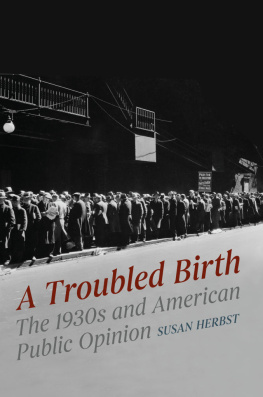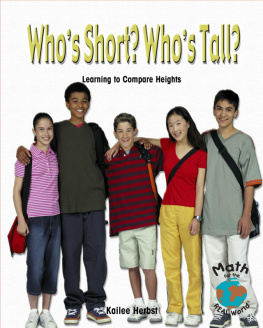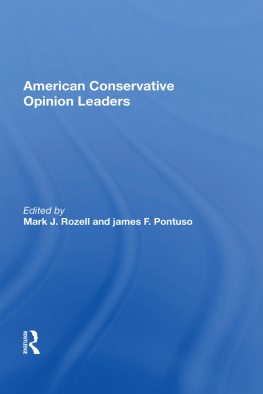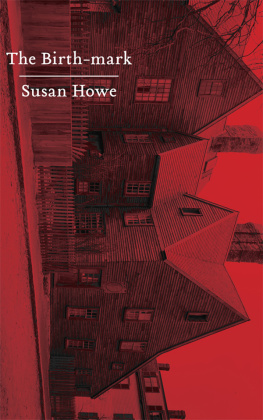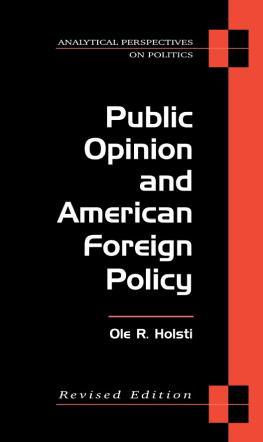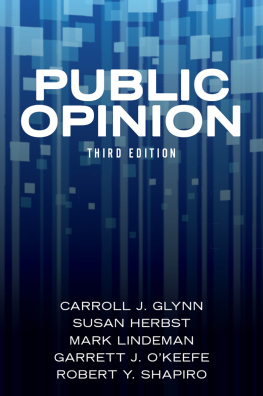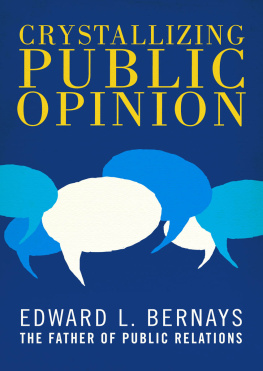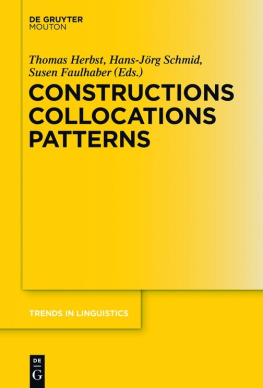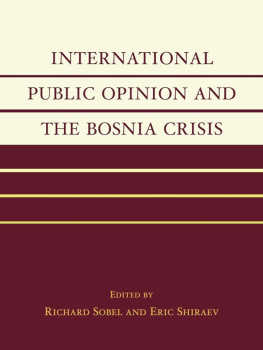A Troubled Birth
Chicago Studies in American Politics
A series edited by Susan Herbst, Lawrence R. Jacobs, Adam J. Berinsky, and Frances Lee; Benjamin I. Page, editor emeritus
Also in the series:
Prisms of the People: Power and Organizing in Twenty-First-Century America
by Hahrie Han, Elizabeth McKenna, and Michelle Oyakawa
The Limits of Party: Congress and Lawmaking in a Polarized Era
by James M. Curry and Frances E. Lee
Democracy Declined: The Failed Politics of Consumer Financial Protection
by Mallory E. SoRelle
Race to the Bottom: How Racial Appeals Work in American Politics
by LaFleur Stephens-Dougan
Americas Inequality Trap
by Nathan J. Kelly
Good Enough for Government Work: The Public Reputation Crisis in America (And What We Can Do to Fix It)
by Amy E. Lerman
Who Wants to Run? How the Devaluing of Political Office Drives Polarization
by Andrew B. Hall
From Politics to the Pews: How Partisanship and the Political Environment Shape Religious Identity
by Michele F. Margolis
The Increasingly United States: How and Why American Political Behavior Nationalized
by Daniel J. Hopkins
Legacies of Losing in American Politics
by Jeffrey K. Tulis and Nicole Mellow
Legislative Style
by William Bernhard and Tracy Sulkin
Why Parties Matter: Political Competition and Democracy in the American South
by John H. Aldrich and John D. Griffin
Neither Liberal nor Conservative: Ideological Innocence in the American Public
by Donald R. Kinder and Nathan P. Kalmoe
A Troubled Birth
The 1930s and American Public Opinion
Susan Herbst
The University of Chicago Press Chicago and London
On the cover: Men lining up for a cheap meal during the 1930s. Courtesy of the Library of Congress.
The University of Chicago Press, Chicago 60637 The University of Chicago Press, Ltd., London
2021 by The University of Chicago
All rights reserved. No part of this book may be used or reproduced in any manner whatsoever without written permission, except in the case of brief quotations in critical articles and reviews. For more information, contact the University of Chicago Press, 1427 E. 60th St., Chicago, IL 60637.
Published 2021
Printed in the United States of America
30 29 28 27 26 25 24 23 22 21 1 2 3 4 5
ISBN-13: 978-0-226-81291-5 (cloth)
ISBN-13: 978-0-226-81310-3 (paper)
ISBN-13: 978-0-226-81307-3 (e-book)
DOI: https://doi.org/10.7208/chicago/9780226813073.001.0001
Library of Congress Cataloging-in-Publication Data
Names: Herbst, Susan, author.
Title: A troubled birth : the 1930s and American public opinion /
Susan Herbst.
Other titles: Chicago studies in American politics.
Description: Chicago : University of Chicago Press, 2021. | Series:
Chicago studies in American politics | Includes bibliographical
references and index.
Identifiers: LCCN 2021012759 | ISBN 9780226812915 (cloth) |
ISBN 9780226813103 (paperback) | ISBN 9780226813073 (ebook)
Subjects: LCSH: Public opinionUnited States. | United States
Politics and government19291933. | United StatesPolitics and government19331945.
Classification: LCC HN90.P8 H495 2021 | DDC 303.3/80973dc23
LC record available at https://lccn.loc.gov/2021012759

This paper meets the requirements of ANSI/NISO Z39.48-1992 (Permanence of Paper).
In memory of my brilliant and wildly imaginative mentor,
James R. Beniger. I got lucky.
Contents
Birth of a Public
Towering over Presidents and State governors, over Congress and State legislatures, over conventions and the vast machinery of party, public opinion stands out, in the United States, as the great source of power, the master of servants who tremble before it.
James Bryce, The American Commonwealth, 1888
Rich fellas come up an they die, an their kids aint no good, an they die out. But we keep a comin. Were the people that live. Cant nobody wipe us out. Cant nobody lick us. Well go on forever, Pa.
Ma Joad, The Grapes of Wrath, 1940
No one predicted the near-simultaneous appearance of a global health crisis, the resulting crash of economies, a surge in protests across the world over race discrimination, the refusal of a sitting president to accept the outcome of a legitimate national election, and a violent invasion of the Capitol building by insurrectionists inspired by their president. Yet in the years before these profoundly impactful events of 2020 and 2021, we had plenty of other surprises in our politics: the rise of the Tea Party and other novel forms of partisan rage, the election of our first African American president and its varied impacts, flamboyant rejection of empirical reality by cable news figures, a rapid proliferation of conspiracy theories, and the fierce, cult-like populist uprising fueled by a wealthy celebrity real estate developer. We failed to predict Donald Trumps astoundingly rapid domination of a major political party, his reshaping of the culture inside the US Senate, his tyrannical war against so many truths, and his frightening interventions in the workings of institutions we had typically accepted as supporting the public goodthe Justice Department, the Centers for Disease Control and Prevention, and the US Postal Service. Also not predicted was the emergence of a novel incivility in public discourseits uniquely coarse tone and its loose adherence to facts, both shaped by the linguistic peculiarities of Twitter. All of these current phenomena matter immensely, so academics interested in politics have rushed to press with questions, concerns, and a frantic search for explanations. Pundits and journalists have been vital, trying to parse the events, albeit with varying degrees of thoughtfulness and sincerity. And these phenomena loom large for every citizen as well; they undergird most all daily media content that we watch, read, retweet, and talk about. The bottom line: We live in a period characterized by partisan polarization, cynicism about our institutions, and a generally mean-spirited ruckus so extraordinarily loud that folks from all walks of life fear each other and question the very possibility of democracy.
The precursors to these phenomenaattitudes, trends, cultural artifacts such as television programs, and conspiratorial websiteswere all there in public view, but clearly they were not properly studied. My own scholarly community is partly to blame, and our only excuse is that it was all complex, fluid, and bigger than we thought.
This is a book about how we might do better, not through sophisticated statistical models or more huge attitude surveys, although both are always welcome tools. Anything is worth a try, given what is typically at stake for a nation. Instead, this book grapples with how the public and public opinionas concepts that undergird this nation and make it vulnerable to antidemocratic movementscame to be. I argue, through the lenses of social and intellectual history, why these fundamental concepts led us into an iron cage of assumptions, biases, and expectations that make us passive, vulnerable to authoritarian behavior of leaders, anti-intellectual, and generally resistant to what should be our citizenly duties. The ways we developed our notions of the public and its sentiments long ago came back to haunt us, and in 2021 we need to understand and face it all.
 This paper meets the requirements of ANSI/NISO Z39.48-1992 (Permanence of Paper).
This paper meets the requirements of ANSI/NISO Z39.48-1992 (Permanence of Paper).
